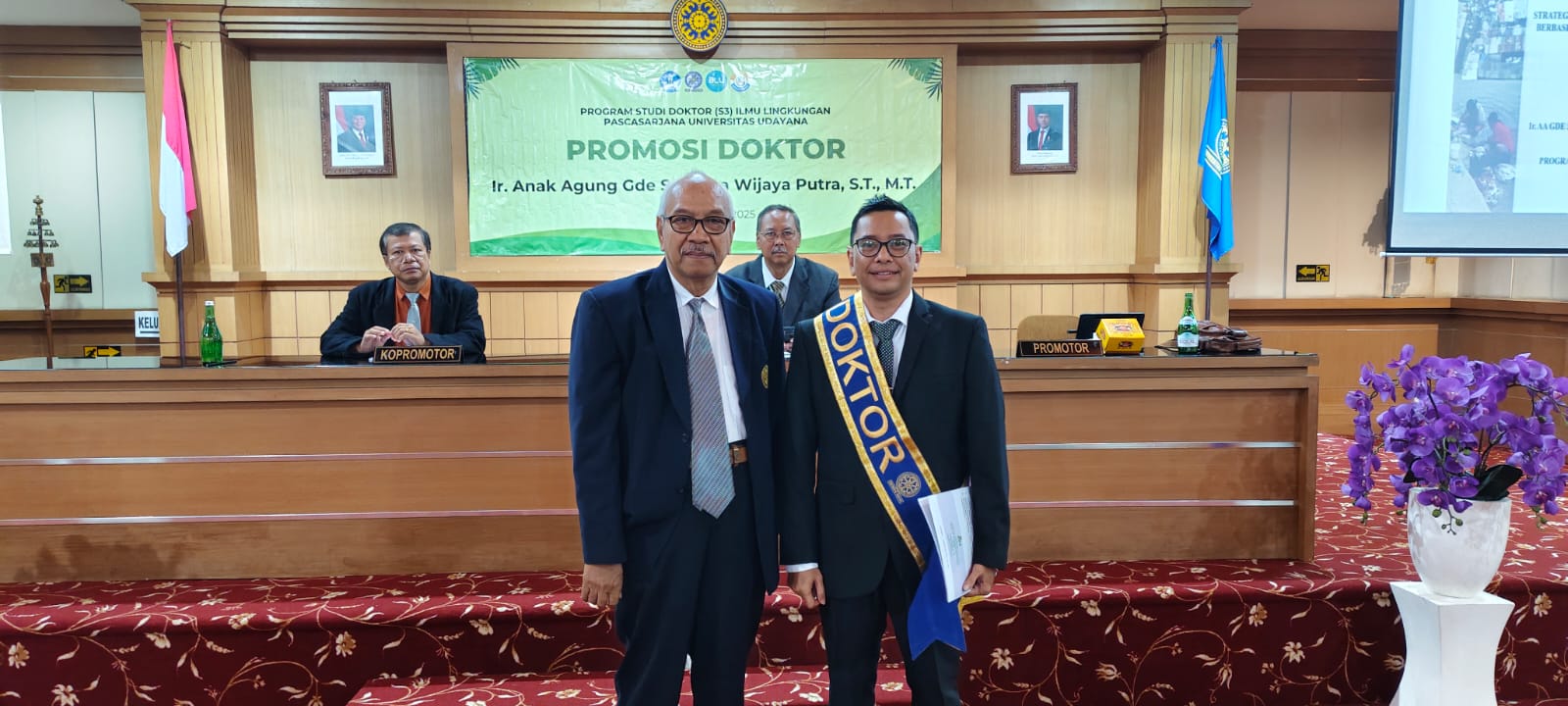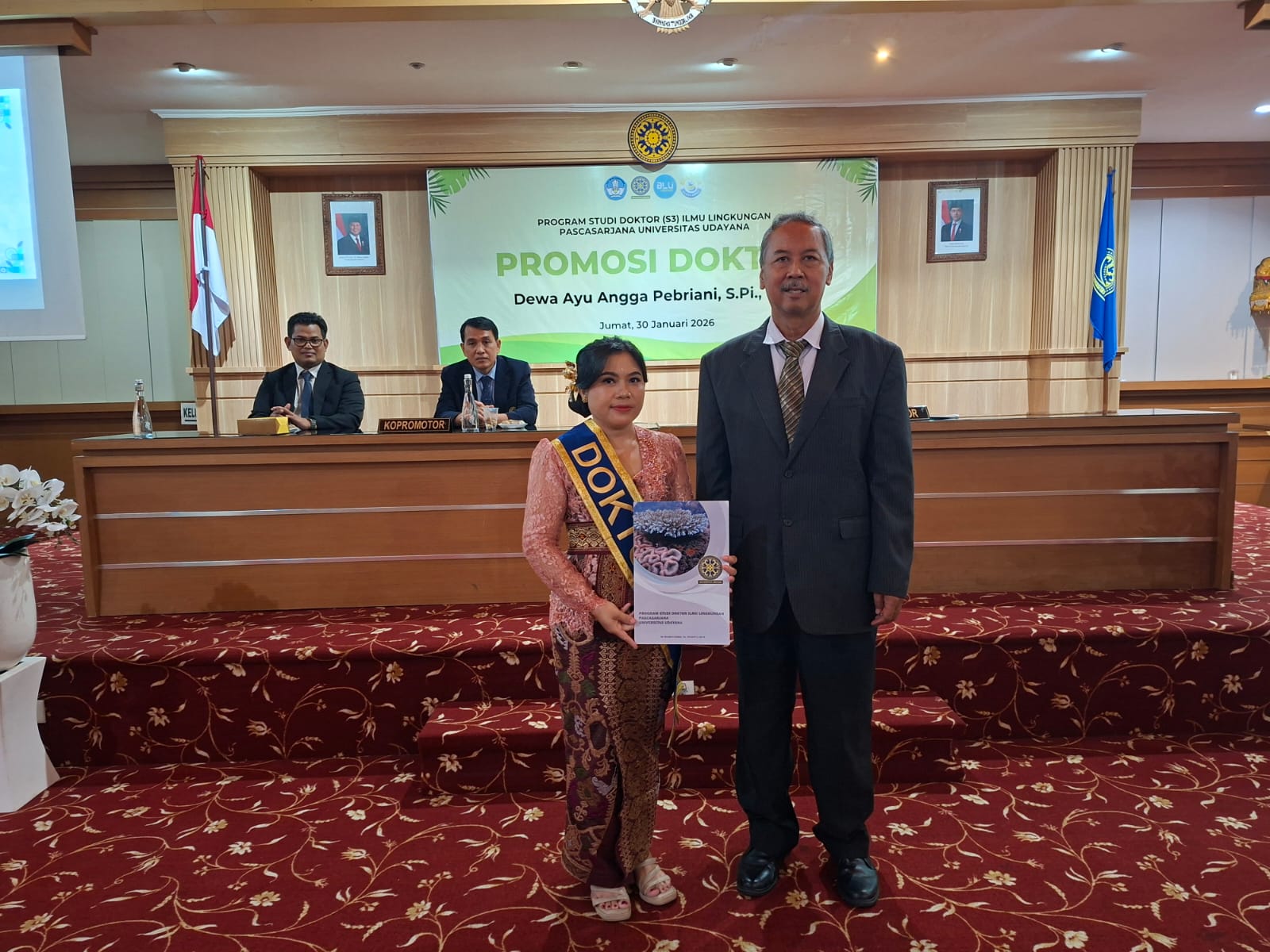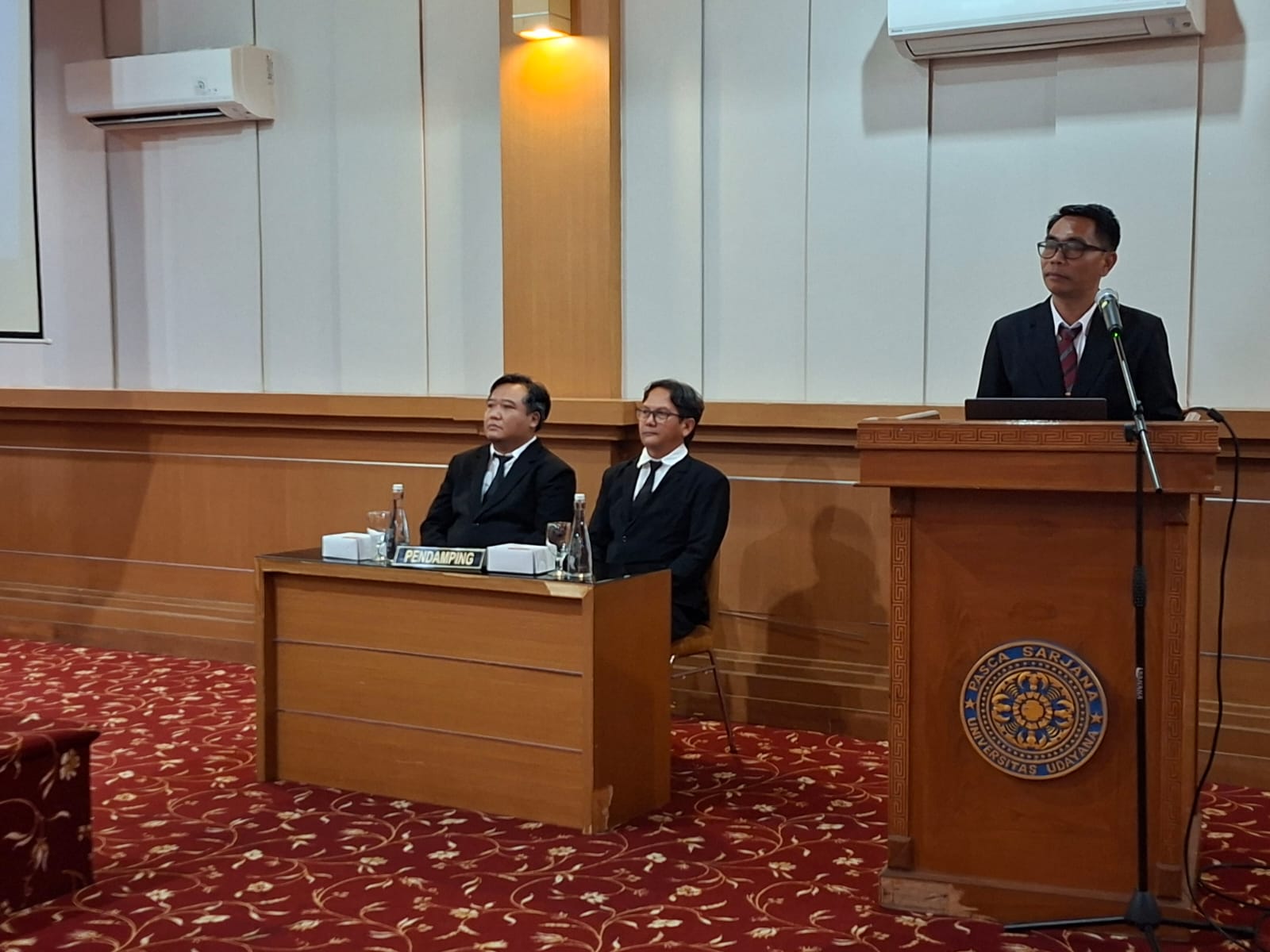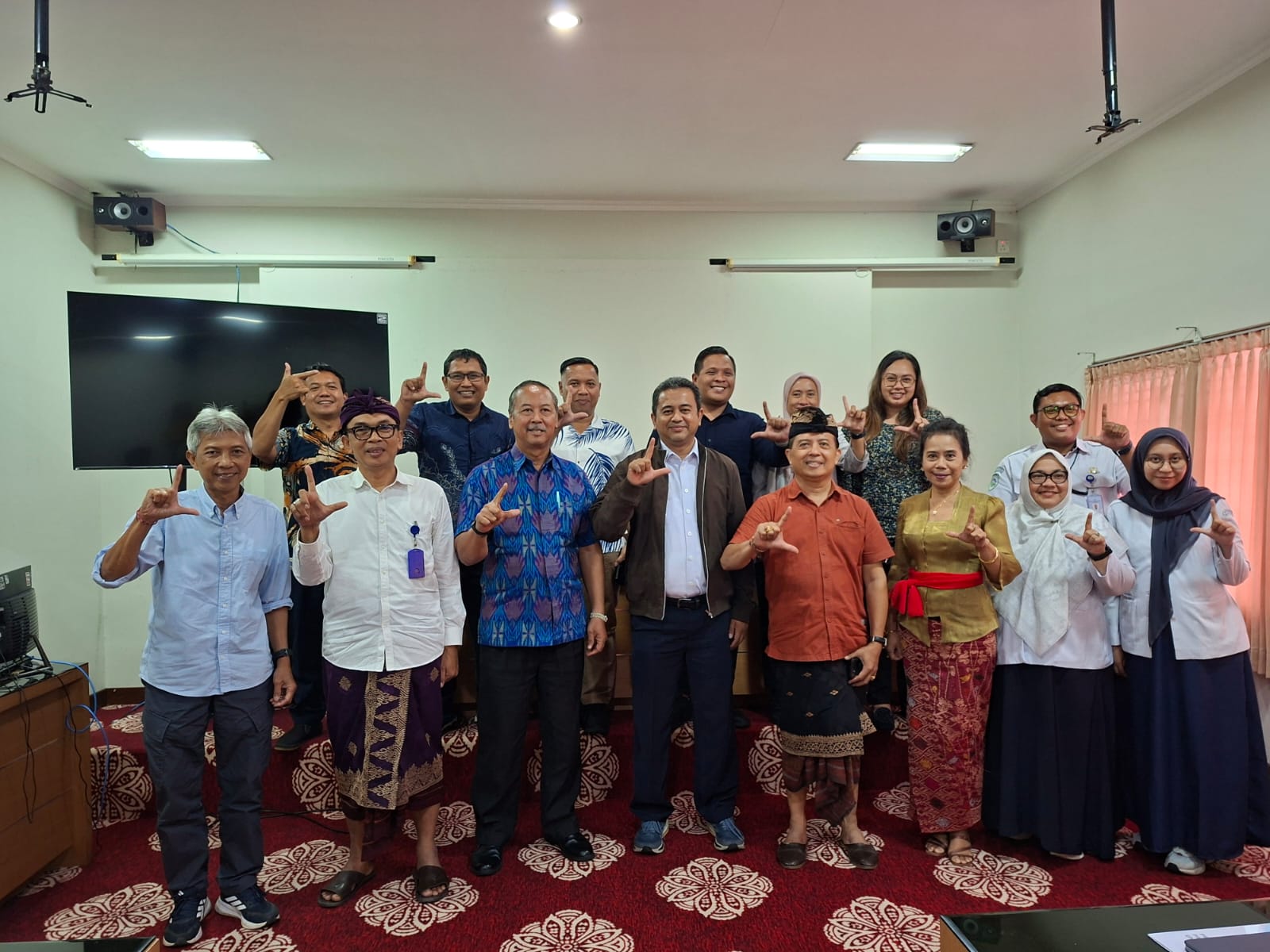Slum Settlements Make Anak Agung Sutrisna Seventeenth Doctor of Environmental Science University General
Denpasar, Tuesday (22/07/2025): Located in the Hall Room of the Udayana University Postgraduate Building, the Environmental Science Doctoral Study Program (PDIL) Postgraduate Program at Udayana University (Udayana University) held a Phase II Final Examination (Open Examination) with Promovendus Ir. Anak Agung Gde Sutrisna Wijaya Putra, ST., MT. Junk Sutrisna, his nickname, is a lecturer at the Faculty of Engineering, Mahasaraswati University, Denpasar, who successfully defended his dissertation entitled “Slum Management Strategies Based on Traditional Villages in Denpasar City, Bali” in front of referees and academic invitees. Acting as the chairman of the session was the Coordinator of PDIL Postgraduate Unud Prof. I Wayan Arthana, MS, PhD, which consisted of eight referees namely, Prof. Dr. Ir. Syamsul Alam Paturusi, MSP, Prof. Dr. I Nyoman Darma Putra, M.Litt, Prof. Dr. Ir. Made Sudiana Mahendra, MAppSc, PhD, Prof. Dr. Ir. I Made Adhika, MSP, Prof. Dr. Ir. I Made Adhika, MSP, Prof. Dr. Ir. I Made Sudarma, MS., Prof. Dr. Ir. I Wayan Suarna, MS., Prof. Dr. Drs. I Wayan Budiarsa Suyasa, MS., and Dr. Drs. Ida Bagus Pujaastawa.., and four academic invitees namely Dr. Drs. I Made Sara Wijana, M.Si., Ni Made Utami Dwipayanti, ST., M.BEnv., PhD., Dr. Pande Gde Sasmita Julyantoro, S.Si., M.Si., and Dr. Ir. I Nyoman Sudipa, MSi.
Junk Sutrisna revealed in his presentation that the slum problem in Denpasar City is a complex issue that is not only triggered by physical aspects such as building irregularities, limited infrastructure, and population density, but also social, cultural, and institutional aspects. The government has made various interventions, but the results have not been optimal. In this context, traditional villages as local institutions that have strong social and cultural legitimacy have the potential to be involved in slum management in a more contextual and sustainable manner. Junk Sutrisna added that this research aims to identify physical characteristics as the cause of slums in Denpasar City, analyze the role of formal and non-formal institutions, including traditional villages, in slum management, and formulate slum management strategies based on the active role of traditional villages. From the results of the research, the promovendus showed that the characteristics of slums in Denpasar are characterized by limited road network services, poor drainage, waste services, and drinking water that are not optimal due to individual land ownership so that the government has limitations in handling and improving the quality of settlement infrastructure facilities. On the institutional side, the role of customary villages is felt to be the most real actor present in community life, including environmental management, namely slum management. Based on the problems of physical characteristics and the role of customary institutions, the resulting slum management strategy emphasizes the strengthening of customary institutions supported by strengthening customary rules (awig-awig) supported by synergy with related institutions, including village/kelurahan offices, supported by universities and developer associations, as well as policy support and development financing from the government. These results make an important contribution to the development of slum management policies based on local wisdom and sustainability, Junk Sutrisna concluded in his presentation.
Meanwhile, Prof. Dr. Ir. Syamsul Alam Paturusi, MSP, as the promoter in his speech at the end of the open examination session, said the dissertation of the promovendus had three strengths, namely a new paradigm in slum management involving indigenous villages, the model developed was a synergy between formal (government) and informal (indigenous villages) parties, and it successfully bridged urban planning, institutional sociology, and theoretical sciences. At the end of his speech, Prof. Syamsul congratulated the promovendus, his family, and Mahasaraswati University for adding to its teaching staff with doctoral degrees (DK).




UDAYANA UNIVERSITY